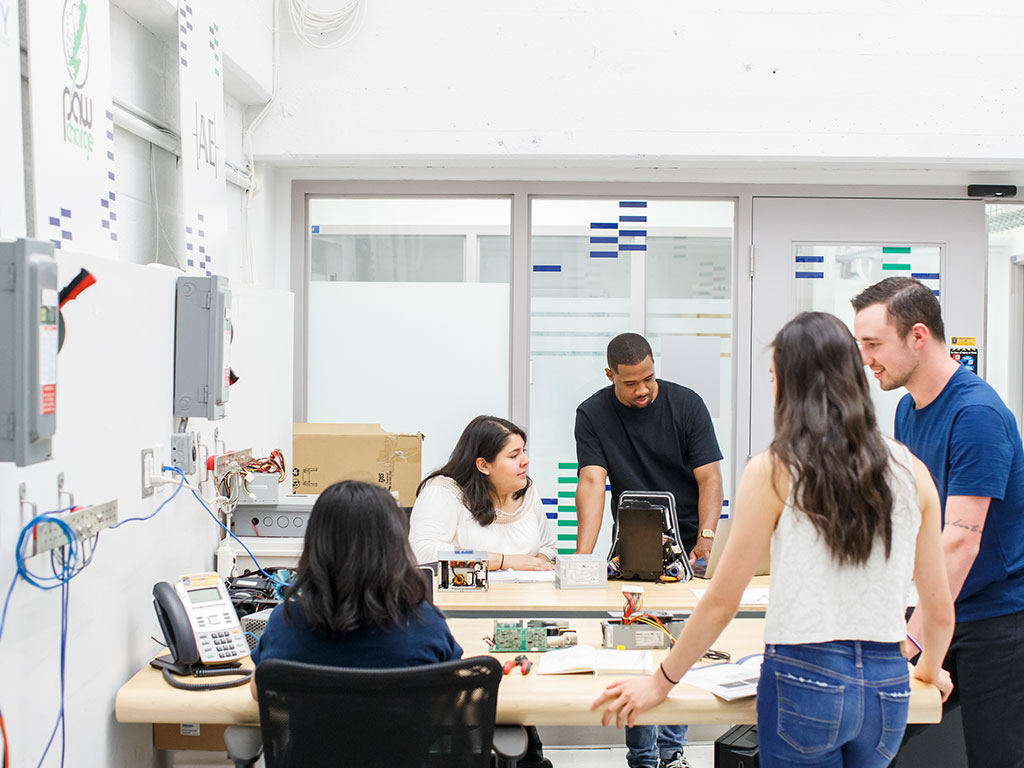Engineering students get their startups off the ground

While developing rehabilitation devices for fracture patients, Nima Feizi, then a biomedical engineering undergrad, realized he needed help pushing his business idea through the discovery phase. “I was used to seeing success stories about tech entrepreneurs, but that doesn’t prepare you for the trial and error of market research.” He found the direction he needed after enrolling in Ryerson’s master of engineering innovation and entrepreneurship (opens in new window) (MEIE) program.
Designed to help engineering grads like Feizi transform their tech-based ideas into viable businesses, the four-semester program teaches skills in business development, commercialization and customer acquisition. “In engineering, the problem you need to solve is often right in front of you,” he said. “In entrepreneurship, you need to seek out the problem and be sure there is a market for the solution.”
MEIE is only one component of an entire ecosystem of entrepreneurial support within the Faculty of Engineering and Architectural Science. The Centre for Engineering Innovation and Entrepreneurship (opens in new window) (CEIE) similarly offers funding via the Esch Awards (opens in new window) , as well as business mentorship and development assistance through iBoost Zone (opens in new window) , an incubator for tech collaboration.
Morgan Kool, a second-year biomedical engineering student, has received both funding and mentorship through the CEIE. The support has helped her navigate the startup landscape while developing a mobility solution for hip replacement patients. “When you’re used to seeing only the finished project, the development stage can be very intimidating,” she said.
Despite these challenges, Kool said the CEIE’s support and mentorship can make starting up achievable for any hard-working student. “The most important thing is that you’re passionate about your project. That will help you stay motivated and focused, even when the process becomes challenging.”